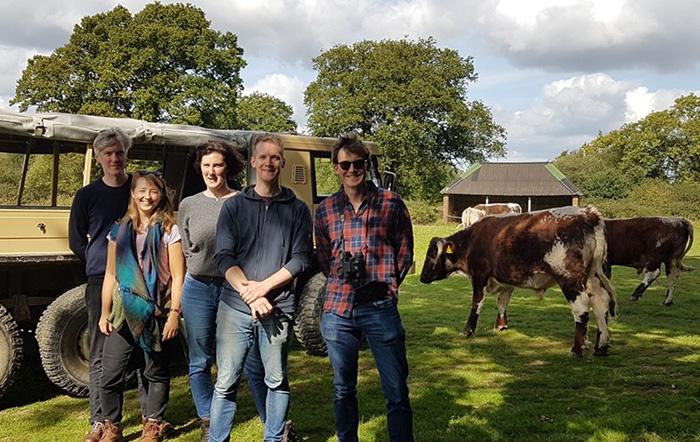Meet Jamie Lorimer

Jamie is an environmental geographer whose research examines the production of environmental knowledge, and how this knowledge comes to shape the world around us. He focuses on powerful understandings of nature and their consequences for human and nonhuman life across different spatial scales.
"I am motivated by a deep curiosity about cultural understandings of nature and how these come to shape the practices of scientists and other experts. I have a great respect for people who spend their lives trying to understand the natural world. I work with them to try and ensure that the powerful knowledges they create are accountable to the publics whose lives they affect."
On 30th October 2020 Jamie Lorimer was awarded a Recognition of Distinction in the University's annual exercise, becoming Professor of Environmental Geography.
"This is a big day for me, and the high point of my career to date. But it would not have been possible without the support of a huge number of lectures, supervisors, mentors, colleagues and students. They say it takes a village to raise a child. It is clear to me, now more than ever, that it takes the generosity of a network of academics to raise a professor."
Jamie recently published his second book, entitled The Probiotic Planet: Using Life to Manage Life. It examines the range of scientists and citizens who are introducing species to try and address health and environmental problems.
His current research, as part of the Oxford LEAP project, looks at the food system, and the work of farmers and scientists trying to make agriculture more sustainable by working with natural processes.
"Our current research traces the profound shift that is underway in parts of the food system as key actors come to realise and address the social and environmental impacts of modern agriculture, especially livestock farming. We aim to provide new insights into the political consequences of the shift to plant-based eating and the rise of new models of regenerative agriculture."
Jamie joined the School of Geography and the Environment in October 2012. He has a BSc (Hons, first class) and PhD from the University of Bristol. His PhD and subsequent post-doctoral fellowships at Oxford (2005-7) were funded by the ESRC. Prior to returning to Oxford, he lectured for four years at Kings College London.
"The stereotype of a geographer may be a middle-aged white man who spends his time outdoors, and that may be true of me, but there is so much more to geography than popular understandings suggest. I have wonderful colleagues doing world class research on such diverse topics, from Sneha Krishnan's work on how the legacies of imperialism come to shape the experiences of childhood in India to Louise Slater's investigations of how climate change effects the risk of flooding."
Jamie is a Fellow of Hertford College and a member of the School of Geography's Environmental Interactions and Technological Life: Environments, Bodies, Mobilities research clusters. He also teaches on the Nature, Society and Environmental Governance MSc course and runs an undergraduate option on Geography and the Anthropocene.
"Geography is a very generous discipline. I can do so many more things as a geographer than I could in another subject. Geographers use such a wide range of methods to produce real world, practical knowledge. When teaching geography, I always enjoy how it allows my students to make sense of the world around them, to understand how the past comes to shape the present, and to see how they are connected to people and places through diverse and often hidden linkages."
- Learn more about Jamie's work.
Meet Jamie Lorimer
Professor of Environmental Geography





